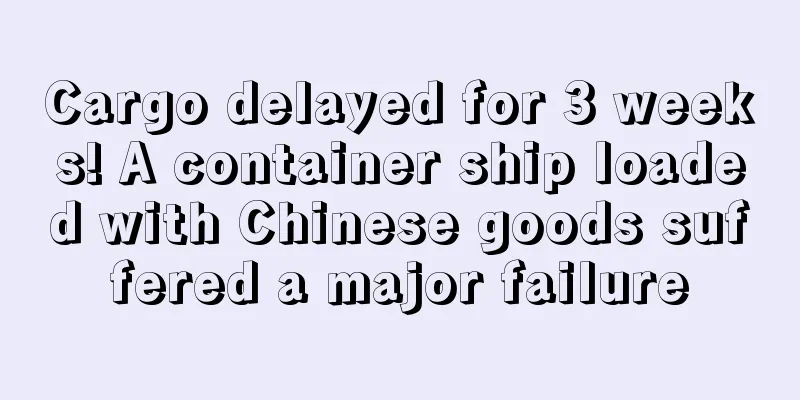Many platforms have adopted the "refund only" policy! Here is the solution

|
E-commerce platforms are competing to introduce more relaxed return rules, hoping to improve customers' shopping experience and gain an edge in the competition. The price they pay is that sellers' return rates rise, and the risk of being fleeced suddenly rises, especially for sellers with high-value goods, who may end up losing both money and goods.
The problem of return fraud is becoming increasingly serious. According to a survey, 57% of buyers have experienced fraudulent returns. With the implementation of new return policies on various platforms, cross-border sellers are facing the problem of how to reduce return losses. Some people have found a solution.
Many platforms update their refund policies, and sellers are anxious
A few days ago, Amazon announced the launch of the Amazon Logistics Refund without Return Solution in the United States. Buyers can enjoy a full refund without having to return the goods. This solution applies to all products except dangerous goods, heavy and large items, and products with an average selling price of more than US$75.
Amazon claims that "refund only" can help sellers simplify the return process, but the reality is that most sellers are almost unanimously opposed to this policy. They believe that the new policy will become a new means for overseas fraudsters to commit fraud: "This policy is no longer a test of product quality, but a test of human nature. Don't forget that there is a threshold for the return rate, and refunds alone will also be counted in the return rate. When the refund exceeds the threshold, the return cost will increase further."
Currently, sellers can choose whether to enable refund-only for their accounts and products, but sellers are worried that after a period of testing, Amazon may force refund-only to be enabled on a large scale.
Sellers who ship their own products also face stricter refund requirements. Starting September 16, Amazon updated its international return policy for sellers who ship their own products. The new policy requires sellers who do not have a default U.S. return address to shorten the processing time after receiving a return request from 5 days to 2 days, and choose to refund without returning the goods or provide a prepaid international return shipping label. If the seller does not provide a return solution within the specified time, Amazon may deduct the amount from its account.
Using "easy returns" to win customers has become a unified strategy for cross-border platforms. Not only Amazon, TikTok has also joined the battle by issuing a no-reason return policy.
Since August 27, TikTok has launched a no-reason return policy for "no longer needed" products in Southeast Asian markets (including Malaysia, the Philippines, Singapore, Thailand and Vietnam). The platform explained that the "no longer needed" return scenario does not affect the seller's store indicators, and the seller does not need to bear the shipping and return shipping costs. However, considering the inventory loss and capital turnover pressure, sellers will still face certain operating challenges.
At the same time, platforms such as Temu and eBay also provide very relaxed return policies, and cross-border easy returns have become a trend. In order to attract users and improve retention, more platforms will show their swords on return rules. Return fraud is on the rise, with $744 billion in annual returns in the U.S.
In the fierce competition in the e-commerce market, convenient returns are an important factor in facilitating buyers to place orders. In 2023, 81% of American consumers surveyed will check the return policy of a new store when they first visit it, and more than half of them will give up shopping because the store does not provide convenient return options.
The return policies of platforms such as Amazon hit the core needs of consumers. Narvar's 2024 Returns Report shows that 39% of US online consumers return products every month, and the value of returned goods in the United States will reach $744 billion in 2023 alone.
What is even more worrying is that return fraud has emerged. The above report shows that 57% of shoppers admit to participating in at least one fraudulent return. This year, return fraud incidents have risen by 16 percentage points to 52%, becoming a key issue that retail sellers need to solve.
At the end of 2023, Amazon took the fraud group REKK to court, accusing it of helping buyers refund high-priced goods without returning them, stealing millions of dollars. The group publicly advertised refund services on social media platforms such as Reddit, and those who wanted to get free products could pay the group to get fraudulent refunds.
In this context of prevalent returns and surging fraud, the fact that many platforms are relaxing return rules has undoubtedly made sellers feel uneasy. It is foreseeable that after the implementation of the new policy, the overall return requests from e-commerce buyers will increase significantly, and sellers will then have to bear the dual pressure of increased return rates and loss of money and goods.
The return situations of cross-border orders mainly include refund without return, 7-day unconditional return, and abandoned goods. For example, the return rate of Amazon Germany is the highest, and the platform has set a 14-day or longer unconditional return period for many categories. Sellers directly said that their profits were eaten up by returns. Some buyers even applied for returns one year after purchasing the goods, and the returned products were basically unsaleable.
The editor learned that co-warehouse insurance can provide protection for various returns, including compensation for "refund only", compensation for the full freight + value of goods for "cross-border 7 days no reason", and capital guarantee for abandoned goods and return orders, etc., which can effectively reduce the operating risks of sellers.
The first cross-border order return and refund guarantee, warehouse sharing insurance to protect sellers
Gongcangbao is the first cross-border e-commerce order return and refund protection service provider, focusing on reducing operational risks for cross-border e-commerce. Its protection services are jointly underwritten by PICC, China Life Property & Casualty Insurance, and Beibu Gulf Insurance. It can provide full-category, full-compensation protection regardless of platform or country, and is suitable for all cross-border sellers.
It is reported that the shared warehouse insurance compensates for the value of goods based on real transactions. It has set up a free shared guarantee warehouse where sellers can move in for free, reducing fixed operating costs by more than 80%. The cooperative logistics channels can also reduce circulation links, improve timeliness, and reduce the risk of returns and refunds.
It is simple for sellers to insure their orders. After the goods are put into the warehouse, they can choose the insurance percentage. For example, for monthly return and refund of less than 5%, the warehouse insurance will be free of insurance service fees; for monthly return and refund of 5%-10%, a 3% insurance service fee will be charged. After the goods are shipped, if there are any return-related issues, the premium can be settled.
The claim process is also very clear. Sellers apply for claims online, and the warehouse insurance will accept the application within 48 hours, complete the information review within 72 hours, and pay the claim within 5 days. For refunds and returns that are not the seller's fault, full compensation will be paid. The two sides are united, and the fewer refunds and returns the seller has, the less compensation the warehouse insurance will pay.
In order to take a further step in cross-border order protection services, Gongcangbao will hold a big gathering in Shenzhen on September 10 to discuss with cross-border sellers, industry experts, etc. the risk solutions related to "cross-border refunds only" and refunds and returns, and build a line of defense for the industry.
Sellers can scan the QR code below the poster or click "Read original text" to register for the conference. |
<<: Selling goods worth 2.9 billion but losing tens of millions, the joys and sorrows of big sales
>>: Amazon's best sellers will be auctioned! The number of its brands exceeds 80
Recommend
What is vaporesso? vaporesso Review, Features
Vaporesso is a technologically innovative enterpri...
Turkish e-commerce has quadrupled in the past five years
According to Yeni Shafak, at the World E-Commerce...
Online shopping boom in Cambodia, Smile Shop's online business grows strongly
Cambodia’s leading B2C e-commerce Smile Shop is r...
AliExpress Shandong warehouse expands to over 30,000 square meters, and delivery to South Korea takes only 5 days
The 6.18 overseas promotion officially started, a...
Millions of listings deleted! The crackdown is still ongoing...
Last year, cybersecurity researcher Andrea Stropp...
Breaking through the 600 billion yuan mark, "World Supermarket" Yiwu becomes popular!
As the New Year approaches, more and more good ne...
Kakao's sales reached 1.25 trillion won! The first quarter achieved the highest performance in history
In the first quarter of this year , Kakao set a n...
A 24-year-old girl sold "slogan clothing" and made more than 1.8 million in a single day!
As we all know, as a red ocean market, the clothi...
What is Trendosaur
Trendosaur is a product trend analysis tool that ...
Another battle with SHEIN? TEMU to launch new site
In 2022, Pinduoduo launched the cross-border e-co...
What is youmkr? youmkr Review, Features
youmkr is an online retail platform focusing on el...
What is Constant Contact? Constant Contact Review, Features
Founded in 1998, Constant Contact is an advertisin...
The country’s first national standard for cross-border e-commerce overseas warehouses is officially launched!
Recently , the launching meeting of the national ...
Zero tolerance for counterfeiting! 64 people sued, over 400 million links removed!
The issue of infringement has become a dark cloud...
What is GroupHigh? GroupHigh Review, Features
GroupHigh is a premium blogger outreach software t...









